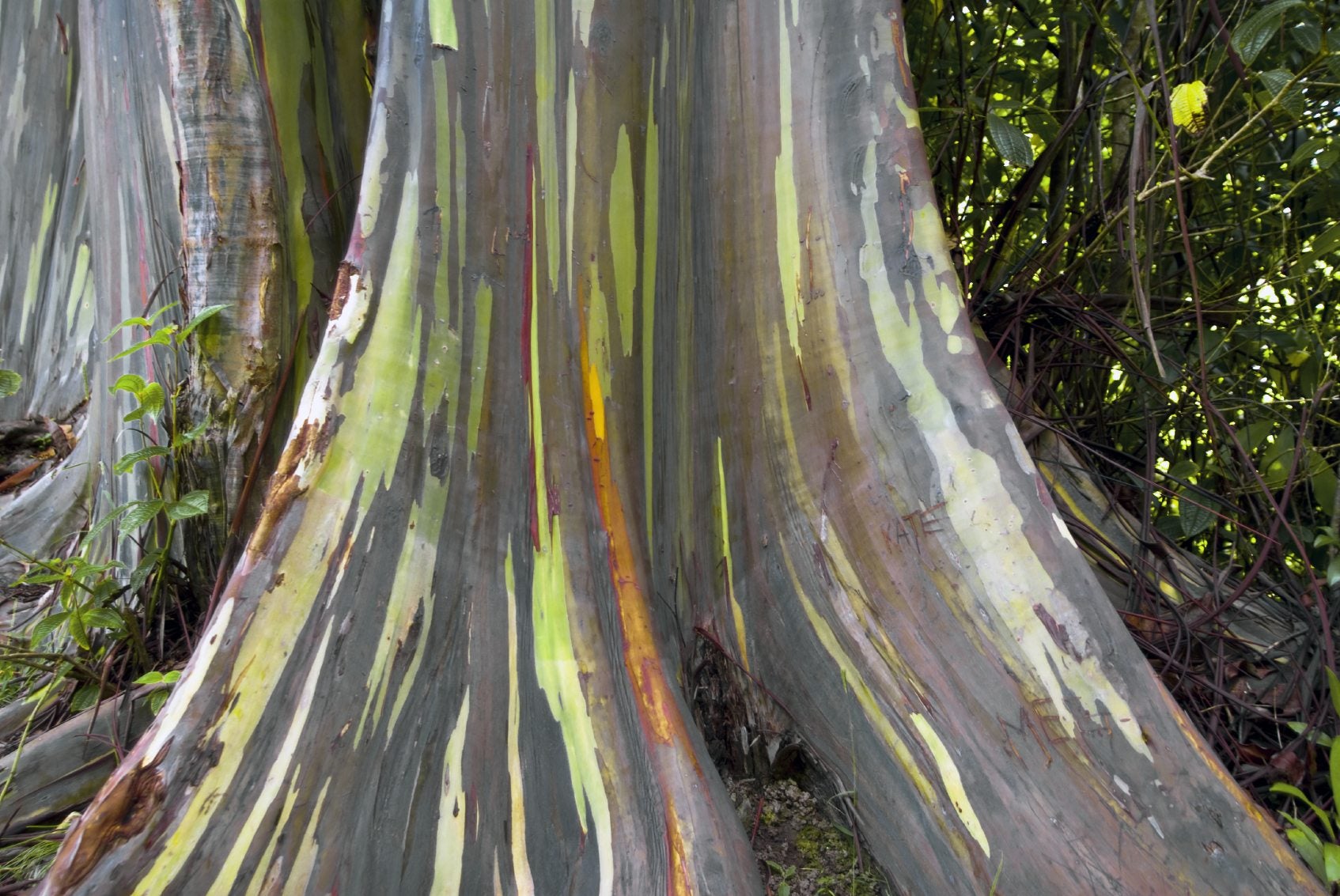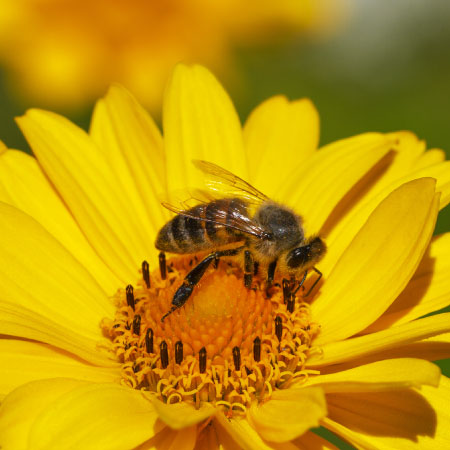Can You Grow A Rainbow Eucalyptus Tree?


People fall in love with rainbow eucalyptus the first time they see it. Intense color and astringent fragrance make the tree unforgettable, but it's not for everyone. Here are a few things you should know before you rush out to buy one of these outstanding beauties.
Where Do Rainbow Eucalyptus Grow?
Rainbow eucalyptus (Eucalyptus deglupta) is the only eucalyptus tree indigenous to the northern hemisphere. It grows in the Philippines, New Guinea, and Indonesia where it thrives in tropical forests that get a lot of rain. The tree grows up to 250 feet (76 m.) tall in its native environment. In the U.S., rainbow eucalyptus grows in the frost-free climates found in Hawaii and the southern portions of California, Texas, and Florida. It is suitable for U.S. Department of Agriculture plant hardiness zones 10 and higher. In the continental U.S., the tree only grows to heights of 100 to 125 feet (30-38 m.). Although this is only about half the height it can reach in its native range, it is still a massive tree.
Can You Grow a Rainbow Eucalyptus?
Aside from climate, rainbow eucalyptus growing conditions include full sun and moist soil. Once established, the tree grows 3 feet (91 cm.) per season without supplemental fertilizer, although it needs regular watering when rainfall is insufficient. The most outstanding feature of a rainbow eucalyptus tree is its bark. The previous season's bark peels off in strips to reveal a brightly colored new bark below. The peeling process results in vertical streaks of red, orange, green, blue, and gray. Although the tree's color isn't as intense outside its native range, rainbow eucalyptus bark color makes it one of the most amazingly colorful trees you can grow. So, can you grow a rainbow eucalyptus? If you live in a frost-free area that receives ample rainfall, you probably can, but the real question is whether you should. Rainbow eucalyptus is a huge tree that is out of scale for most home landscapes. It can cause property damage as its raised roots break up sidewalks, damage foundations, and raise small structures such as sheds. The tree is better suited to open areas, like parks and fields, where it provides excellent shade as well as fragrance and beauty.
Gardening tips, videos, info and more delivered right to your inbox!
Sign up for the Gardening Know How newsletter today and receive a free copy of our e-book "How to Grow Delicious Tomatoes".

Jackie Carroll has written over 500 articles for Gardening Know How on a wide range of topics.
-
 Looking For Plants To Give You The Soft And Fuzzies? Try These 5 Fuzzy Leaf Plant Options
Looking For Plants To Give You The Soft And Fuzzies? Try These 5 Fuzzy Leaf Plant OptionsLovers of texture, drama, silver foliage and tactile plants will adore these special sensory garden additions. These fuzzy leaf plant options will leave you all aglow
By Susan Albert
-
 Get Ready For A Summer Of Hummers! Grow These Full Sun Hummingbird Plants and Flowers
Get Ready For A Summer Of Hummers! Grow These Full Sun Hummingbird Plants and FlowersIf you’re lucky enough to enjoy a sunny backyard, make sure you are maxing out on your pollinator opportunities and grow these full sun hummingbird plants and flowers
By Tonya Barnett